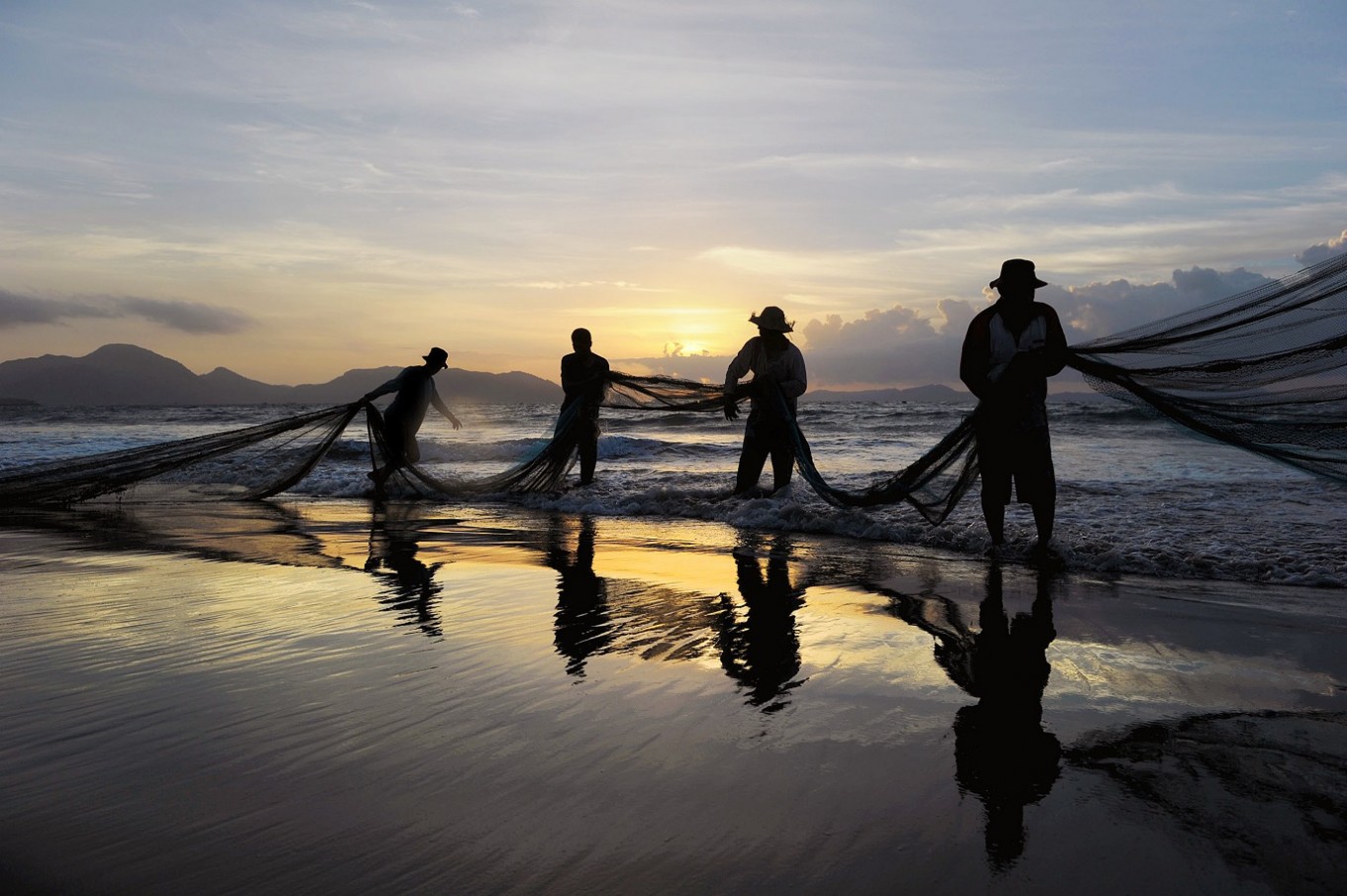Popular Reads
Top Results
Can't find what you're looking for?
View all search resultsPopular Reads
Top Results
Can't find what you're looking for?
View all search resultsCutting fisheries subsidies crucial for oceans
Change text size
Gift Premium Articles
to Anyone
R
ecent studies on the health of our oceans offer irrefutable evidence that something very disturbing is taking place and that the threat to marine life has never been graver.
As we marked World Oceans Day on June 8 the evidence has never been more compelling that many fish stocks are rapidly being depleted. According to the United Nation’s Food and Agriculture Organization 33 percent of global stocks are overfished — compared with 10 percent in 1974. In some regions the picture is even more dire, with 60 percent of stocks overfished in the Mediterranean Sea, the Black Sea, the Southeast Pacific and the Southwest Atlantic.
A UN report issued last month says that the pace of species extinction is accelerating and that roughly 1 million animal and plant species face extinction within decades. About a third of reef forming corals, sharks and marine mammals are threatened with extinction.
The cause of this looming catastrophe is no mystery. According to the UN, two-thirds of the global marine environment has been significantly altered by human actions. This should be of concern to everyone. More than 40 million people worldwide earn their living through fishing. What’s more, fish make up 20 percent of the protein intake for 3.2 billion people.
It is certainly a matter of relevance for the 164 Members of the World Trade Organization (WTO). Negotiations are under way at the WTO which aim to prohibit the use of government subsidies for fishers who engage in illegal, unreported or unregulated fishing along with government support that leads to overcapacity and overfishing. In addition to protecting our oceans, an agreement to curb fisheries subsidies would help ensure the viability of smaller enterprises and create better conditions for economic development in coastal regions.
These negotiations also represent a critically important litmus test as to whether the WTO can continue to deliver multilateral agreements, as we have done in recent years. Trade Ministers meeting in Buenos Aires in 2017 pledged to strike such a deal by the end of 2019 and leaders from more than 190 countries agreed in 2015 that as part of the Sustainable Development Goals an accord would be in place by 2020. Good progress was made last year but the pace of negotiations needs to shift into high gear as these talks are rapidly approaching a critical stage.
strict conservation measures led to an increase in fish biomass of 463 percent in just 10 years.
The WTO may not seem the obvious place for negotiations aimed at striking a deal to help restore global fish stocks. But the WTO is unique in that it is the only organization in the world that has the authority to negotiate binding disciplines in the complex field of government subsidies. The WTO and its predecessor the General Agreement on Tariffs and Trade have already negotiated pacts which limit trade distorting subsidies in the fields of industry and agriculture. Not all subsidies are deemed harmful in those areas and it is clear that new disciplines would not cover all government support for fishers.
Because there is a dearth of reliable data, precise figures on government support for the fisheries sector are hard to come by. Nonetheless, most experts peg government outlays at between US$14 billion and $54 billion per year.
No one questions the link between government subsidies and the depletion of global fish stocks. But subsidies are a complex topic and these negotiations have been complicated by the difficulty in finding common ground on sensitive issues like the role of national authorities and Regional Fish Management Organizations and how best to support artisanal fishers.
Another important issue is transparency. If an agreement is to be reached, WTO members need to understand the scale of the problem and this means governments must spell out exactly how much they are allocating in support of their fishing fleets. In the WTO this is done through notifications provided to the organization that describe the breadth and depth of fisheries support programs. WTO members have agreed to provide such data but so far only 25 WTO members have provided this information and the deadline for submitting notifications is 30 June.
It is not too late to reverse the alarming depletion of fish stocks. Mexico, South Africa and Costa Rica are among those implementing fishery management programs that have produced positive results. When Mexican authorities established a national park near the village of Cabo Pulmo on the Gulf of California, for instance, the strict conservation measures put in place led to an increase in fish biomass of 463 percent in just 10 years. According to one study, this is perhaps the largest ever recovery of life in a marine reserve.
But the time to act is now. WTO members must set aside their differences and find the compromises needed to bring about a deal. A new WTO agreement cannot be expected to cover all factors that lead to the depletion of fisheries, nor to solve this problem entirely. But it can offer a decisive and vital contribution. Failure to act now would make our debate moot because the fish will all be gone.
***
The writer is director general of the World Trade Organization.











